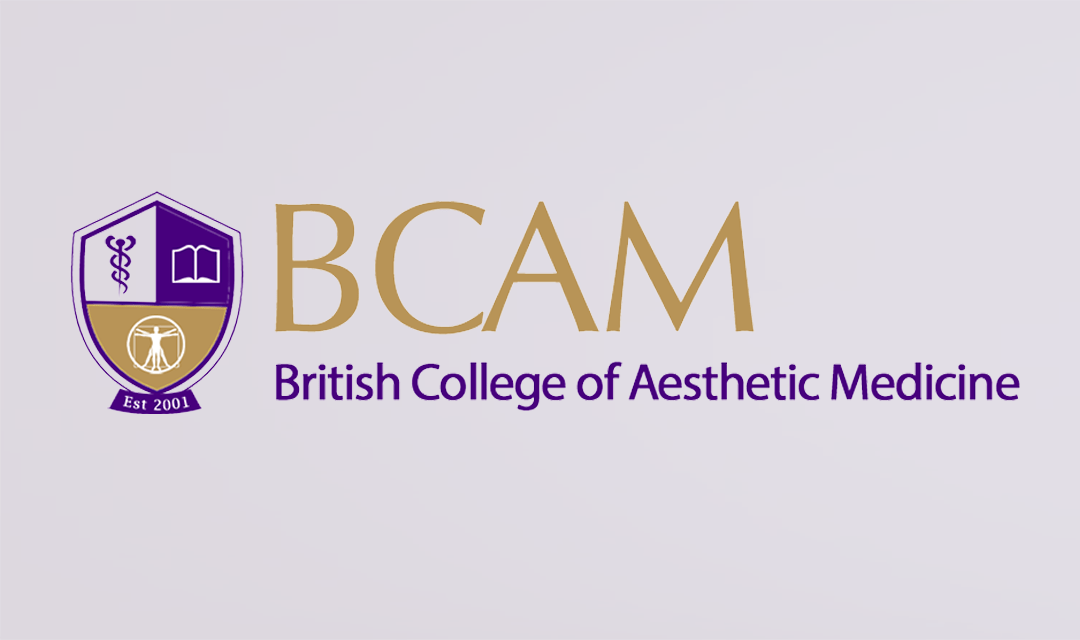The British College of Aesthetic Medicine (BCAM) is calling for urgent regulation of the aesthetic medicine sector amidst a recent flurry of stakeholder discussions and high-profile media attention, including publication of a report that highlights a complete lack of basic training standards that is putting the public at risk.
BCAM, the UK’s foremost association for doctors and dentists practising aesthetic medicine, has been consulted by bodies including the Department of Health and Social Care (DHSC) and the Medicines and Healthcare products Regulatory Agency (MHRA) about regulation issues.
The College recently conducted a 20th Anniversary Members Survey on UK Regulation and is soon to publish the results of the 2021 Annual Clinical Review, a detailed audit of members’ clinical activity. Making fillers prescription-only and restricting the administering of such treatments to registered healthcare professionals are high on BCAM’s campaign agenda.
As part of BCAM’s push towards improved safety and regulation, the College has recruited Dr John Curran to spearhead its new Regulatory, Ethics and Professional Standards Committee. BCAM is committed to steer the conversation with key stakeholders and has reviewed the recent report released by the All-Party Parliamentary Group on Beauty, Aesthetics and Wellbeing (APPG) following a year of public inquiry sessions and written submissions from a variety of stakeholders including BCAM.
Comments by APPG Co-Chairs Carolyn Harris MP and Judith Cummins MP following the release of the report align with BCAM’s own findings.
“For too long there have been next to no limits on who can carry out aesthetic treatments, what qualifications they must have, or where they can administer them,” they commented.
BCAM supported Laura Trott MP’s Private Members Bill to outlaw toxin and filler injections for under 18s, which successfully achieved Royal Assent in May and is set to become law later this year. BCAM will continue close communication with the MP with the aim of further highlighting the regulation issue in Parliament.
Last week BCAM was involved in consultations with the MHRA over regulation and the College, which also works closely with the DHSC, is pressing the government to urgently review the aesthetic medicine sector and put in place regulations that will improve public safety.
BCAM President Dr Uliana Gout said: “As a charity, patient safety is paramount for BCAM and we are committed to raising standards and ensuring best practice in the aesthetic medicine sector. We have created a comprehensive strategy in partnership with key stakeholders in the UK to further this discussion and to listen closely to our members concerns.”
BCAM has itself undergone a major modernisation project over the past 18 months, despite the challenges of Covid, and has launched a new website, branding and logo in its 20th anniversary year with the aim of improving public education. The website offers more comprehensive information, a search facility so patients can find reputable practitioners and a detailed glossary of medical terms.
Dr Curran, the recently-appointed head of BCAM’s Regulatory, Ethics and Professional Standards Committee, is pioneering the development and update of BCAM’s own Code of Conduct through a variety of initiatives including member engagement surveys.
He said: “Having read the APPG report, it highlights the complete lack of regulation which allows anyone to carry out these procedures with minimal legal restrictions or qualifications, putting the public at great risk.
“We urge the government to prioritise making injectable fillers prescription-only and to review legislation around those who are permitted to administer such treatments. BCAM members, who are all qualified doctors and dentists, regularly see patients suffering complications from fillers administered by non-healthcare professionals who do not have the clinical expertise to carry out the treatments or access to the necessary prescription-only medicines when something goes wrong.”
Dr Aggie Zatonska, who is responsible for BCAM’s Annual Clinical Review alongside Dr Paul Myers, said: “We have been carrying out an annual audit of members’ clinical activity for 10 years, working closely with the DHSC to share valuable data that can inform and influence government decision making. Our latest results will be published in the next few weeks, providing more evidence of the urgent need for regulation.”
Dr John Elder, who leads BCAM’s Aesthetic Medicine Regulatory and Advisory Group (AMRAG) said: “With dermal fillers, the failure to recognise that something is going wrong and be able to initiate appropriate treatment – usually requiring prescription drugs – is a serious issue.
“Fillers should be prescription-only and regulation is required to limit who can administer them, which will significantly reduce the risk to the public.”
Dr Bhavjit Kaur, a BCAM Trustee responsible for PR, said: “BCAM is leading the way in pressing the government to urgently address this issue and is working with its own members to define aesthetic medicine and create a code of conduct.
“Regulation of the aesthetic medicine sector is long overdue and the complete lack of even a basic training standard is putting the public at risk. There has been a huge rise in demand for aesthetic treatments such as toxin injections and fillers during the pandemic which makes this issue all the more urgent.”
In its 20th anniversary year, BCAM is spearheading discussion and engagement with members and stakeholders on the subject of regulation, ethics and code of conduct and will be releasing a number of press releases later this year.
For further details, please contact BCAM Communications Coordinator Claire Britcher at [email protected] or call 07949 414069.
The British College of Aesthetic Medicine (BCAM) is the UK’s leading representative body for doctors and dentists practising aesthetic medicine. The charity aims to promote safe, effective, and ethical treatment for patients and clinicians through leadership, education, support and professional development.







